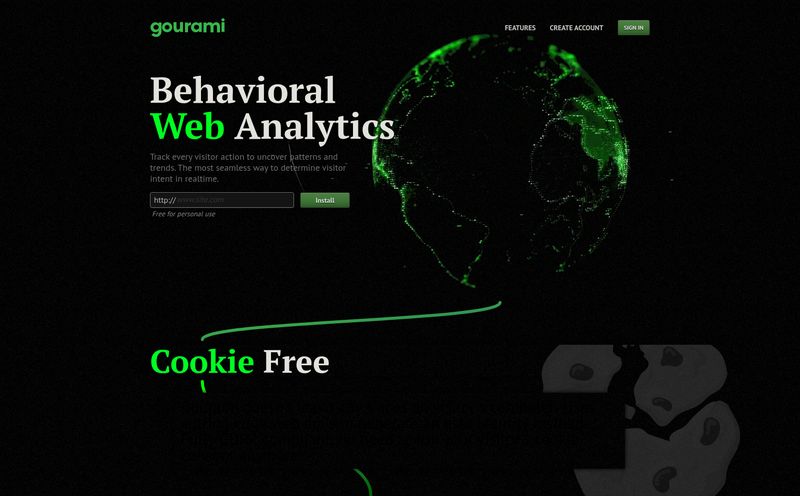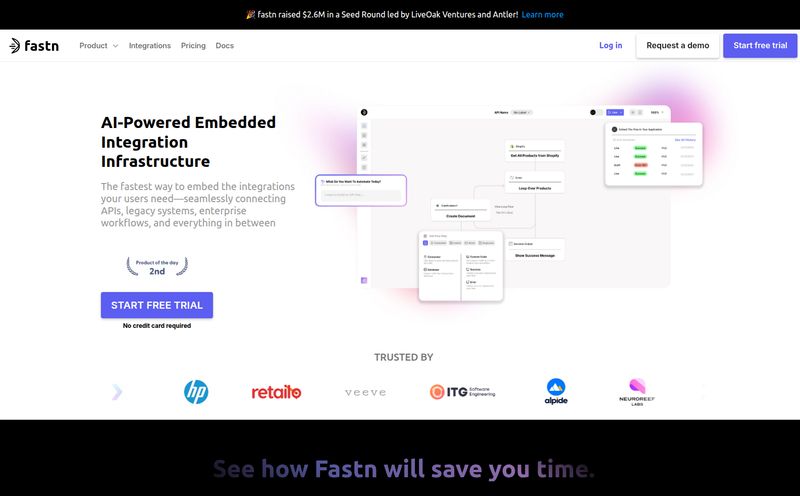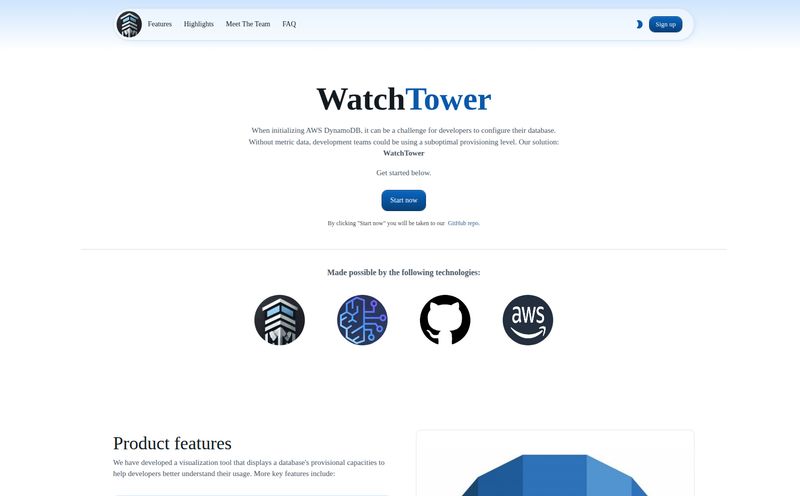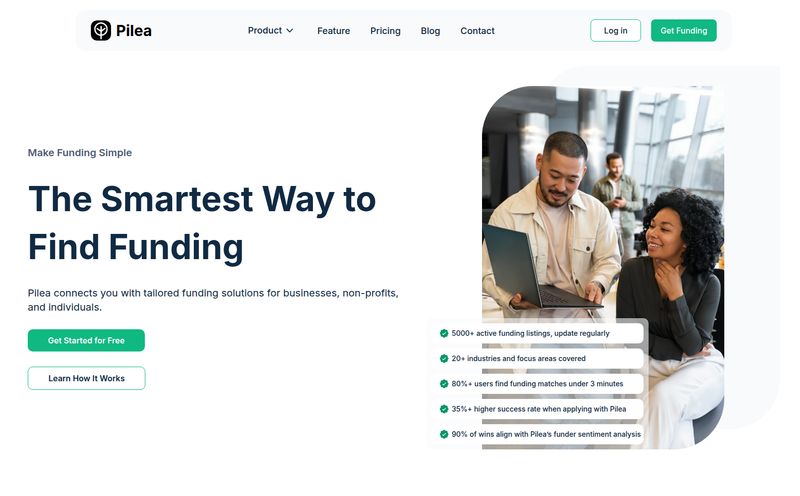I have a confession to make. There’s a special kind of dread that only a marketer or researcher can understand. It’s the feeling you get when you open a spreadsheet and see thousands of rows of open-ended survey responses. It's the digital equivalent of being told to find a specific needle in a continent-sized haystack. We've all been there, right? Gulping down a third cup of coffee, eyes glazing over as we try to manually code responses like “good,” “it was fine,” and “nice” into meaningful categories. It’s a soul-crushing, time-sucking vortex.
For years, we’ve just accepted this as the cost of getting rich, qualitative data. But the tech world moves fast, and AI is finally coming for our spreadsheets. And honestly? I’m ready to hand them over. Recently, a tool called Aftercare caught my eye, and it’s promising to do exactly that. It's not just another form builder; it's an intelligent layer designed to make the entire survey process smarter. And I have to say, I'm intrigued.
What Exactly is Aftercare? (And Why Should You Care?)
So, what’s the big deal? Aftercare pitches itself as an AI-powered survey platform with intelligent follow-up questions and automated analysis. Let’s break that down. Instead of just presenting a static form, Aftercare creates a conversation. It’s designed to plug directly into your existing survey tools—a smart move, since nobody wants to migrate their entire operation overnight. Think of it less as a replacement for your SurveyMonkey or Google Forms and more as a brilliant upgrade for them.
The core idea is simple but powerful: Aftercare acts like a skilled human interviewer for every single one of your respondents. It doesn't just collect an answer; it understands it and, if the answer is a bit vague, it probes for more detail. It's the difference between asking “Did you like our event?” and having a system that can follow up a “Yes” with, “That’s great to hear! What part of the event did you enjoy the most?” This is where you get the gold. This is how you move from data to actual insights.
The AI Features That Actually Matter
Let's get into the nuts and bolts. A lot of platforms are slapping an “AI” label on everything these days, but Aftercare seems to have some genuinely useful applications for market research. It’s not just hype.
The Magic of AI Follow-Up Questions
This is the headline feature, and for good reason. Imagine a user types, “The user interface was confusing.” A standard survey just logs that and moves on. You’re left wondering what was confusing. The colors? The layout? The navigation? Aftercare’s AI can jump in, in real-time, and ask: “Could you tell me a bit more about what you found confusing in the interface?” Suddenly, you have actionable feedback instead of a vague complaint. This turns a simple survey into a dynamic, one-on-one interview, scaled across all your users. For a data nerd like me, that’s just... chef's kiss.
Automated Analysis is a Godsend
Okay, so you've collected all this rich, detailed feedback. Now what? You're back to the spreadsheet vortex, right? Wrong. This is the other half of Aftercare’s magic. The platform automatically categorizes and summarizes all those open-ended responses for you. It groups similar comments, identifies key themes, and presents you with a high-level overview of what people are really saying. That process of manually reading, tagging, and tallying, which used to take me days, can now be done in minutes. This isn't just a time-saver; it’s a sanity-saver.
A Flexible Workflow Builder That Doesn't Require a PhD
I’m also a big fan of their workflow builder. It looks clean and uses a drag-and-drop system, which means you don't need to be a developer to create some pretty sophisticated survey logic. You can mix and match different blocks—standard questions, AI follow-ups, response categorization—to build a survey that fits your exact needs. It feels intuitive, which is more than I can say for some of the clunky, legacy survey platforms out there.

Visit Aftercare
Let's Talk Money: Aftercare's Pricing Tiers
Alright, the inevitable question: what's this going to cost? The pricing structure seems pretty straightforward and caters to different scales, which I appreciate. You’re not forced into an enterprise plan if you’re a small shop.
| Plan | Price | Key Features |
|---|---|---|
| Free | $0 / month | Basic AI survey, 30 responses/month, 1 seat |
| Pro | $25 / month | More responses, powerful features, 500 responses/month, 1 seat |
| Team | $75 / month | Collaboration features, 2,000 responses/month, 5 seats |
| Business | Contact for Pricing | Enterprise-scale volume, unlimited responses & seats |
The Free plan is a great way to dip your toes in the water and see if the AI conversation flow works for you. At $25/month, the Pro plan seems like a no-brainer for freelancers, small businesses, or marketers who run regular surveys. If you save even just two or three hours of manual analysis work a month, it has already paid for itself. The Team and Business tiers are clearly aimed at larger organizations and agencies. They also offer a custom API plan if you want to get really technical, which is a nice touch.
The Good, The Bad, and The AI
No tool is perfect, of course. Based on what I've seen, here’s my honest breakdown.
The good stuff is obvious: it saves a tremendous amount of time and delivers a depth of insight that’s nearly impossible to get from standard surveys. The AI Data Quality Assessment is another subtle but brilliant feature—it can flag low-effort or nonsensical answers, helping you clean your data and focus on the responses that matter. That’s a huge win for data integrity.
On the flip side, there are a few things to keep in mind. The price could be a hurdle for some, especially those used to completely free tools for small projects. And while the AI is impressive, it’s not magic. You still need a human brain to set up a good initial survey and, most importantly, to interpret the final themes the AI uncovers. AI can show you what people are saying, but you still need to figure out the strategic why. Think of it as a powerful assistant, not a replacement for a researcher. Lastly, some of the more advanced features are naturally reserved for the higher-tier plans, which is standard practice but something to be aware of.
More Than Just a Tool: A Nod to Professionalism
Here’s something that might get missed in a typical review but stands out to me as an industry professional. On their site, Aftercare displays badges for SOC 2 Type 1 compliance and membership in the Insights Association. This might seem like boring footer content, but it's actually a huge green flag. SOC 2 compliance means they take data security seriously, which is critical when you’re handling potentially sensitive customer feedback. And being a member of the Insights Association signals that they understand and are committed to the standards of the professional market research community. They’re not just some tech bros who decided to build a survey tool; they’re invested in the space. That builds a lot of trust in my book.
My Final Take: Is Aftercare Worth It?
So, what's the verdict? In my opinion, Aftercare is one of teh most exciting tools I’ve seen in the research space in a long time. It addresses a real, tangible pain point for anyone who works with qualitative data.
If you're a market researcher, a UX pro, a product manager, or an agency still spending hours upon hours sifting through text responses, you owe it to yourself to check it out. The ability to have dynamic, AI-driven conversations at scale is a genuine step forward. It’s a move away from static, boring forms and towards more human, more insightful feedback loops. It won’t replace the need for smart researchers, but it will give them superpowers. And in this industry, who couldn't use a few of those?
Frequently Asked Questions about Aftercare
- Can Aftercare replace my current survey tool like SurveyMonkey?
- Not exactly. It's designed to integrate with and enhance your existing survey stack. You can use it to add a layer of AI intelligence—like follow-up questions and analysis—to the surveys you already run on other platforms.
- How accurate is the AI analysis?
- The AI is quite advanced at identifying themes and categorizing responses, which can save a huge amount of time. However, it's always best practice to have a human review the results. Think of the AI as a highly efficient research assistant that does 90% of the heavy lifting for you.
- Is Aftercare difficult to set up?
- No, it's designed to be user-friendly. With a flexible drag-and-drop workflow builder and the ability to plug into tools you already use, the learning curve appears to be pretty gentle, even for non-technical users.
- What kind of support does Aftercare offer?
- While not explicitly detailed here, most SaaS platforms at this level offer support through documentation, email, and chat. The Business plan and custom API pricing often include dedicated or 'white-glove' onboarding and support.
- Is there a free trial?
- Yes, Aftercare has a completely Free plan that allows you to run a conversational survey and collect up to 30 responses per month. It's a great way to test the platform's core functionality without any commitment.



